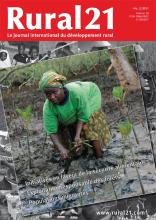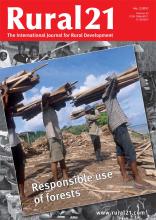Land Library
Welcome to the Land Portal Library. Explore our vast collection of open-access resources (over 74,000) including reports, journal articles, research papers, peer-reviewed publications, legal documents, videos and much more.
/ library resources
Showing items 1 through 9 of 17.The USAID's Investor Survey on Land Rights aimed to provide a more systematic understanding of the drivers of tenure risk to land-based investments from the perspective of the private sector, and of how investors and operators assess, mitigate and are affected by such risks.
This guide discusses USAID’s recommendations for best practices related to the due diligence and structuring of land-based investments, with the goal of reducing risks and facilitating responsible projects that benefit both the private sector and local communities.
Guest commentary by Robert Oberndorf, Resource Law Specialist, Tenure and Global Climate Change Project.
A guest post by Robert Oberndorf, Resource Law Specialist, Tenure and Global Climate Change Project. Recent rapid changes in Burma have led to concerns related to the land tenure and property rights (LTPR) of smallholder farmers and communities throughout the country.
ELD is a joint initiative of Germany, the European Commission and the United Nations Convention to Combat Desertification (UNCCD). ELD offers a strong platform for raising public awareness of land degradation and advocating sustainable land-use strategies.
Soils around the world are degrading rapidly, reducing ecosystem diversity and some important functions, threatening food and other human securities, and increasing vulnerability to climate change. This is a vicious cycle created by and leading to further unsustainable land-use practices.
Property rights are inexorably linked to taxes, largely because property taxes are often one of the easiest taxes to collect, particularly in developing markets with significant informal sectors.
Les populations vivant aux alentours d’aires protégées doivent développer de nouveaux moyens de subsistance pour assurer leur survie. Les populations riveraines des forêts dépendent souvent de l’utilisation des produits et services que leur offrent les ressources naturelles.
The Congo Basin Forest Partnership aims to reconcile forest conservation with forest use. This article explains what a “policy network” of this sort can achieve and where its limits lie.





